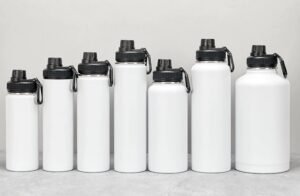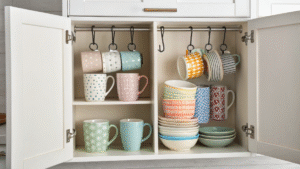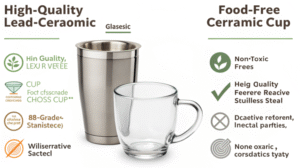Heavy, clunky bottles weighing down your kid's backpack? You need a bottle that is light, durable, and easy to use, without adding unnecessary bulk to their very active day.
The best lightweight plastic bottles are made from BPA-free Tritan plastic. This material is shatter-resistant, incredibly light, and won't retain odors or tastes. Brands like Nalgene and CamelBak are perfect for students and athletes due to their durability and user-friendly designs.
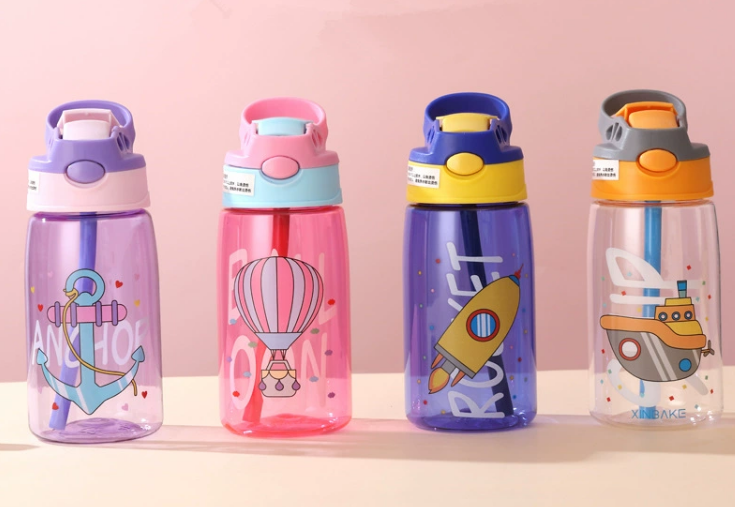
As a mom and someone in the custom drinkware business, this question comes up all the time. Parents want a bottle that can survive the playground but doesn't feel like a brick in their child's bag. It is a tricky balance to find. I have helped many schools and sports teams find the perfect solution for their needs. Often, this means moving away from heavy stainless steel and toward practical, lightweight plastic options. Let's look at what really matters for these active users who need hydration on the go.
What Water Bottle Do Most Athletes Use?
Your old bottle is too slow because you have to stop and unscrew the cap. Athletes need instant hydration without breaking their stride. A simple squeeze bottle just is not enough anymore.
Most athletes use bottles designed for quick, one-handed access. Squeeze bottles like the Gatorade Gx model are classics for team sports. Individual athletes often prefer spout-style lids from brands like CamelBak for instant, high-flow hydration without needing to completely stop their activity.
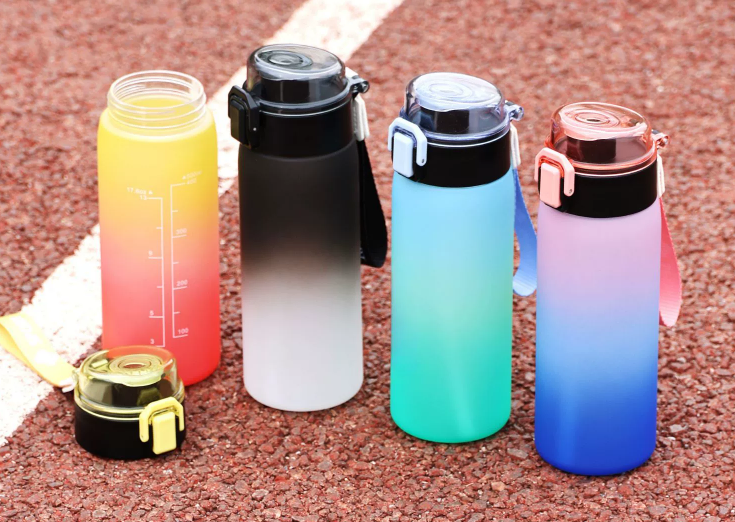
When I work with local sports teams on custom bottle orders, the coach's primary concern is always speed and efficiency. For team sports like soccer or basketball, classic squeeze bottles are still king. They allow multiple players to hydrate quickly during a timeout without their mouths ever touching a shared spout, which is great for hygiene. The design is simple and effective. For individual athletes like runners or gym-goers, the technology has evolved. They need bottles that offer both speed and security. A bottle like the CamelBak Podium is a perfect example. It has a high-flow, self-sealing jet valve. You can squeeze it for a quick burst of water mid-run, and it won't leak when tossed in a gym bag. It combines the instant access of a squeeze bottle with the spill-proof confidence of a sealed lid, offering the best of both worlds.
Bottle Types for Different Athletes
| Athlete Type | Recommended Bottle | Why It Works |
|---|---|---|
| Team Sports Player | Classic Squeeze Bottle | Fast, shareable, and allows for touch-free hydration. |
| Runner / Gym-Goer | High-Flow Spout Bottle | Provides one-handed use with a self-sealing, leak-proof valve. |
| Cyclist | Specialized Cage Bottle | Features a tapered design to fit securely in a bike cage. |
What is the Most Lightweight Water Bottle?
Every ounce counts when you are hiking a long trail or packing a heavy school bag. Your insulated steel bottle feels like a brick. You need a bottle that basically disappears when empty.
The most lightweight water bottles are collapsible soft flasks made from flexible materials like TPU. Brands like HydraPak and Salomon lead this category. For a rigid option, single-wall Tritan plastic bottles offer the best balance of being extremely lightweight and highly durable.
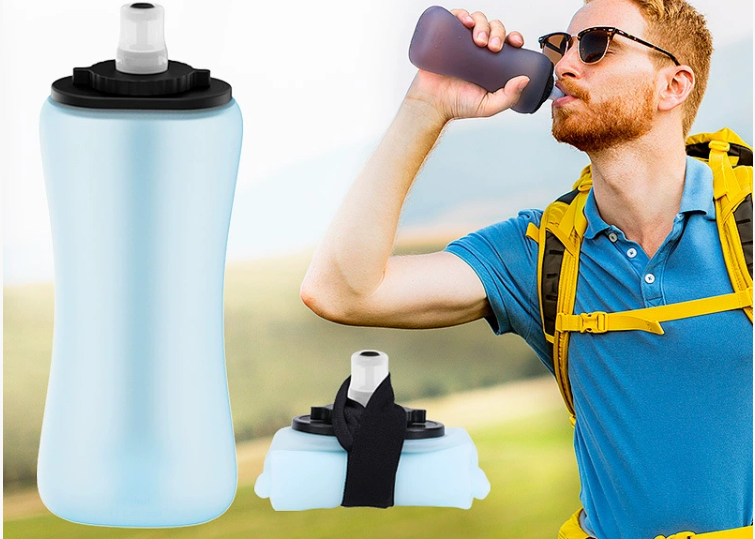
From a manufacturing and materials standpoint, this question breaks down into two categories: rigid and collapsible. For everyday use, like for school or the gym, rigid Tritan plastic is a miracle material. It's almost as clear as glass and nearly unbreakable, but it weighs very little. I've seen kids drop these bottles from playground equipment and they just bounce. It is the go-to material for schools because it combines safety and durability. Then you have the ultralight category, designed for serious hikers and minimalist travelers. Collapsible bottles are made from a flexible but tough material called TPU. They have a brilliant design where they shrink as you drink from them. This saves a huge amount of space in a pack and stops the annoying sound of water sloshing around. It's a specialized product for a user who prioritizes weight and packability above all else.
Rigid vs. Collapsible Lightweight Bottles
| Bottle Type | Material | Best For | Pro / Con |
|---|---|---|---|
| Rigid Lightweight | Tritan Plastic | School, daily use, general sports. | Pro: Very durable, easy to clean. Con: Bulky when empty. |
| Collapsible | TPU / Silicone | Hiking, running, minimalist travel. | Pro: Ultralight, packs down small. Con: Harder to clean, can be wobbly. |
Why is Gen Z Obsessed with Water Bottles?
You see teenagers carrying huge, decorated water bottles everywhere they go. It seems like more than just hydration; it feels like a cultural trend that you might be missing out on.
For Gen Z, a water bottle is a personal accessory and a statement piece, just like a phone case or sneakers. It is a symbol of their commitment to personal wellness, sustainability, and individual style, often customized with stickers that express their unique identity.
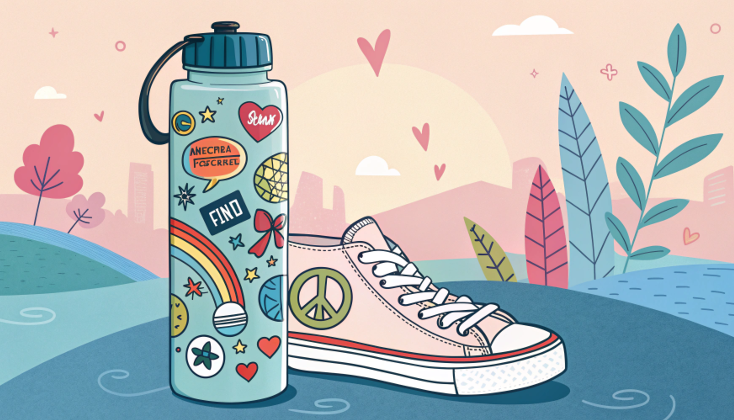
This trend is the heart and soul of my customization business. Gen Z has completely transformed a simple, functional item into a powerful tool for self-expression. My designer, Emma, constantly gets requests from clients to create custom sticker packs and unique graphics specifically for water bottles. The bottle itself has become a canvas.
A Symbol of Wellness and Identity
First, carrying a water bottle is a public display of health consciousness. It aligns with the "that girl" aesthetic online, which promotes a lifestyle of wellness, organization, and being put-together. A stylish water bottle is a key part of that modern uniform.
The Environmental Factor
This generation is also deeply aware of environmental issues. Choosing a reusable bottle is a clear and simple way to reject single-use plastics. It's a small daily action that reflects a much larger value system.
The Power of Customization
Finally, and most importantly for my business, the bottle's brand acts as a starting point, but the customization is what makes it truly personal. Stickers, charms, and colorful sleeves turn a mass-produced item into a one-of-a-kind artifact that says, "This is who I am."
Which is Better, Stanley or Owala?
You are stuck choosing between the two trendiest bottles on the market today. Stanley has all the social media hype, but Owala looks so practical. You do not want to choose the wrong one.
Neither is objectively "better," as they serve different primary purposes. The Stanley Quencher is best for high-capacity, stationary hydration, like at a desk or in a car. The Owala FreeSip is better for leak-proof portability and active use, thanks to its innovative dual-function lid.
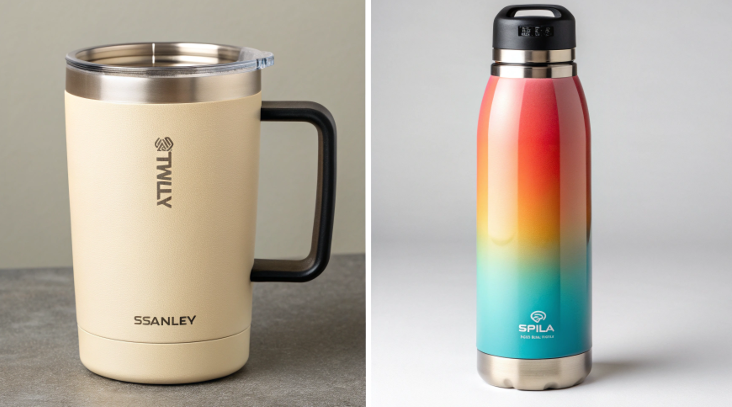
I've sourced and customized both of these bottles for clients, and they appeal to completely different users, even though they look similar. The Stanley Quencher is a cultural phenomenon. Its success comes from its huge size, its famous handle, and, most critically, its base that tapers to fit into a car's cup holder. It turned carrying a massive amount of water into a status symbol. However, its main drawback is the opening for the straw, which means it is not leak-proof and is best used in a stable environment. The Owala, on the other hand, was engineered for life on the move. Its "FreeSip" lid is a total game-changer, letting you either sip through a built-in straw or chug from a larger spout. When the protective cover is closed, it is completely leak-proof, making it perfect for throwing in a bag.
Stanley vs. Owala at a Glance
| Feature | Stanley Quencher | Owala FreeSip |
|---|---|---|
| Best For | Desk/Car Use, Maximum Volume | Active Use, Leak-Proof Travel |
| Key Feature | Large Handle & Straw, Tapered Base | Patented FreeSip Lid (Sip or Chug) |
| Leak-Proof? | No (Straw opening is exposed) | Yes (When lid is fully closed) |
| Primary Vibe | Trend-Driven Status Accessory | Practical, Functional Innovation |
Conclusion
Choosing the right bottle depends on your activity. Lightweight Tritan is perfect for kids and sports, while trends like Owala and Stanley show how bottles have become essential personal accessories.

